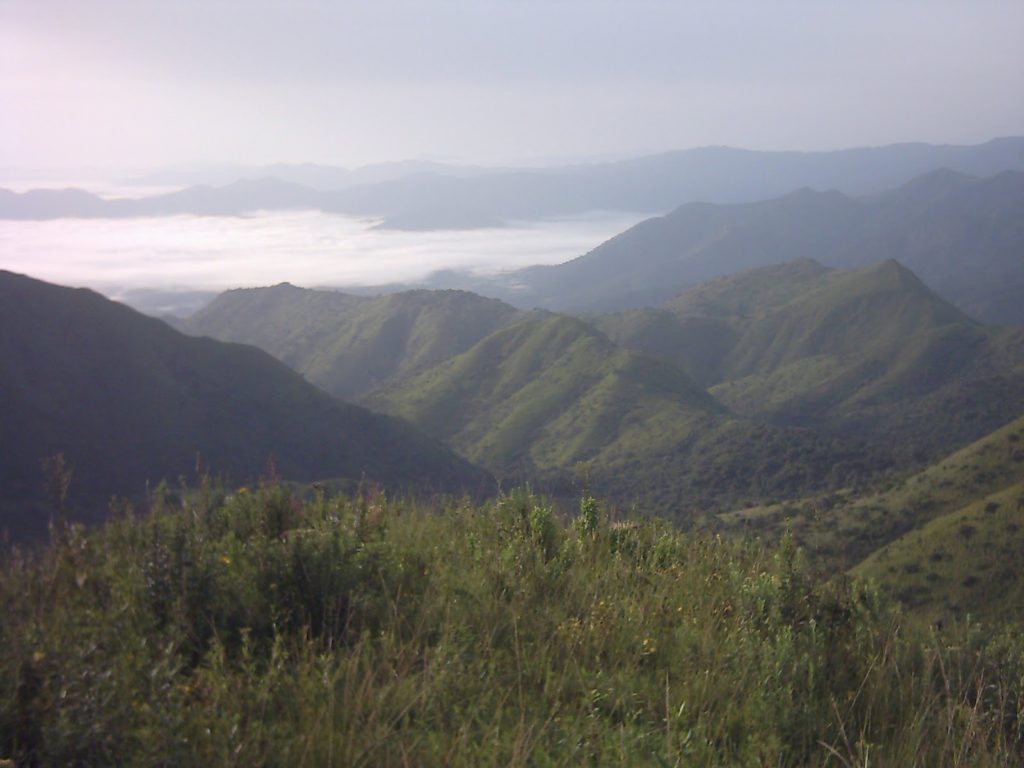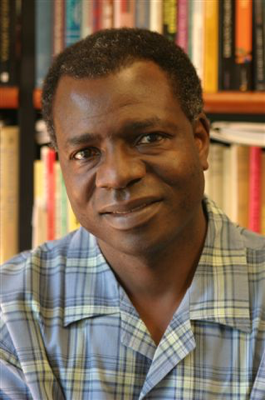
Sonny Okosun’s song, “Papa’s Land,” released in 1977, is about the dispossession of Africans from the land by colonists. Four decades later, land and land acquisition continues to be a major social, economic, political, and religious staging ground for contending modernity in postcolonial Africa. In fact, studies from different parts of Africa today demonstrate that land, more than ever before, has become an important commodity. Our project examines a land dispute between the Njirong and Ntumbaw villages of the Ndu sub-division of Donga Mantung in the northwest region of Cameroon. These two neighboring villages have lived together for generations and are interconnected in many ways. They share religious institutions: one Catholic church, one Baptist church (though now there is a Baptist Church in each village), one mosque, and the traditional rites that protect land in both villages was performed by the Nsingong (a traditional society charged with stewarding the land) of Njirong Village. The villagers intermarried and in spite of the conflict still have only one government recognized market in Ntumbaw village. Fulani cattle headers lived in Ntumbaw, but during the dry season, they moved their cattle to the low lands of Mbawrong in Njirong Village, because there was an abundance of grass and water for the cattle.
Then the residents of Njirong Village started growing rice at Mbawrong in the late 1960s. It is alleged that the Chief of Njirong invited the chief of Ntumbaw to join him in cultivating rice. The Ntumbaw Chief hesitated, but later sent his own villagers down to Mbawrong to cultivate rice. The Chief of Njirong reportedly designated a plot of land within Njirong territory, bordering Ntumbaw lands, for the Ntumbaw villagers to cultivate. It is alleged that Ntumbaw farmers at Mbawrong then annexed that piece of land and claimed ownership of the land. Since 1974, the land dispute has disrupted social, family, economic, and spiritual relationships between the two villages, which are both members of the Warr Family of the Wimbum community in Donga Mantung Division. In 2004, in accordance with the 1974 Land Law of Cameroon, the Senior Divisional Officer of Donga Mantung convened a Land Consultative Committee, also called a Land Commission, to settle the dispute. Both parties made submissions to the commission and after hearing from the neighbors of Njirong and Ntumbaw, the commission ruled that the land at Mbawrong belonged to Njirong Village. However, in an unusual move, the commission granted the villagers of Ntumbaw permission to continue to grow rice and work on the farms on the condition that they acknowledged that the Chief of Njirong is the landlord and also refrain from working on their farms on the sacred day of Njirong. Sacred days in Wimbum villages are also called “native Sunday”, because that day is a holy day according to traditional religion. The people of Ntumbaw continued to work on the farms, but rejected the ruling of the commission. Tensions continued to mount between the two villages, and at some point, Njirong villagers reported that Ntumbaw was mounting an economic boycott of Njirong, since Njirong’s access to the rest of the Sub Division passes through Ntumbaw. It was also alleged that Ntumbaw wanted to sell portions of the land they had annexed. But tensions burst into open violence when Mr. Shey Evaristus Nganjo of Njirong was ambushed on June 12, 2013 by some members of the Ntumbaw community and attacked with a machete, leaving him fatally wounded. He died on his way to the hospital. Other members of the Njirong community were wounded in the same attack, including a physically challenged man, Mr. Etienne Ntami, whose fingers were cut off. The senior divisional officer imposed a curfew in response to this violence, and deployed members of the armed forces and police to keep the peace. Several people were arrested and some were charged in court for the crimes. Following the conflict, the senior divisional officer ruled again that all people from Ntumbaw working at Mbawrong were no longer permitted to do so as a group, but that individuals who wanted to cultivate rice must first apply for the Chief of Njirong’s permission.
This crisis reflects some of the key questions animating the Contending Modernities Authority, Community, and Identity working groups. First, it is a conflict of authority in a postcolonial state and therefore evokes all the transformations that African countries have gone through in the imperial and post imperial age. Second, there are three sources of authority in tension here. There is the traditional Wimbum authority, namely the chiefs who are custodians of the land on behalf of the ancestors. In 2001, the chiefs of both villages poured libation (the ritual of calling on the ancestors by pouring wine on the land and invoking the name of the ancestors to respond). Both sides claim that their ancestors agreed with their position on the matter because they accepted their offerings in the form of libation. The second area of authority is religious authority. Islamic and Catholic leaders have generally been sympathetic to the village of Ntumbaw since most of them are members of Ntumbaw. Both religious communities and their leaders as well as the Baptist churches at Ntumbaw and Njirong have been involved in discussions and continue to seek ways of achieving reconciliation. It is not clear to us if their attempts at peace and reconciliation have been coordinated with traditional authorities.
Finally, the third and most consequential level of authority is the leadership of the state of Cameroon represented by local administrators such as the senior divisional officer, the divisional officer, and the forces of law and order whom they have deployed several times to halt violence in this land dispute. There are several things here which we will unpack in the future. The land law of Cameroon authorizes the divisional officer to mediate land disputes and he can call a land consultative commission to hear submissions from disputed parties and that commission then rules on who owns the land. The senior divisional officer used the provisions of that law to call a commission in 2004, and based on submissions from the two villages and their neighbors that commission determined that the disputed land at Mbawrong belongs to Njirong. The committee based their judgment on the history of the region, ancestral claims, and testimonies of neighbors and oral historical accounts. The commission also took into consideration that Njirong village carried out the rituals that protect the land in both villages. As such, this decision and the Cameroonian land law take religious ritual into account in addition to secular activities and documents. As articulated in the work of Charles Taylor, this ruling operationalizes a broad view of secularity which does not limit religion.
The village of Ntumbaw continues to contest the decision of the land commission of 2004, arguing that Njirong is not listed in many official government documents, such as minutes of meetings attended by other Wimbum Chiefs. We have brought up this point with members from Njirong village and they have argued that in the past, Ntumbaw villagers did not want to recognize them as an independent village. However, Njirong villagers took their case to the west Cameroon government and their chief was recognized and that recognition also meant that they kept the land on which they have lived for generations. As both villages look to the future, the question will not end with who owns Papa’s land, but: is the land big enough for all who need to grow food? If that is the case, and both sides agree, what are the conditions for reconciliation?

